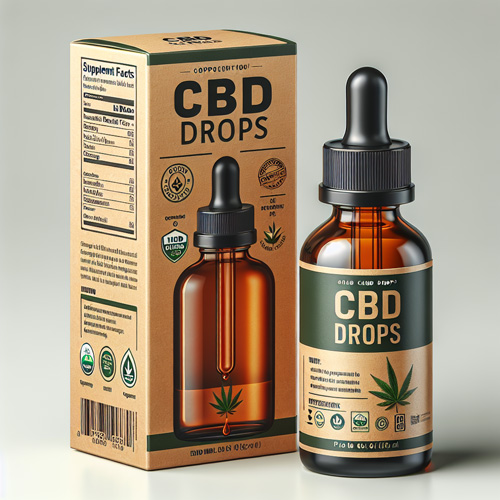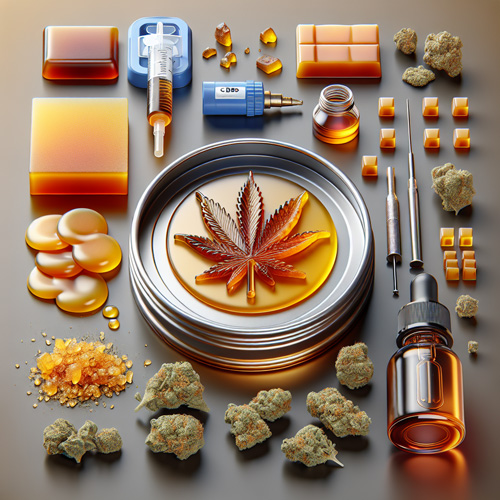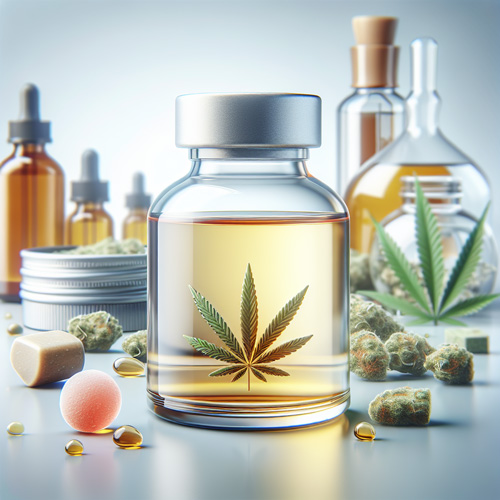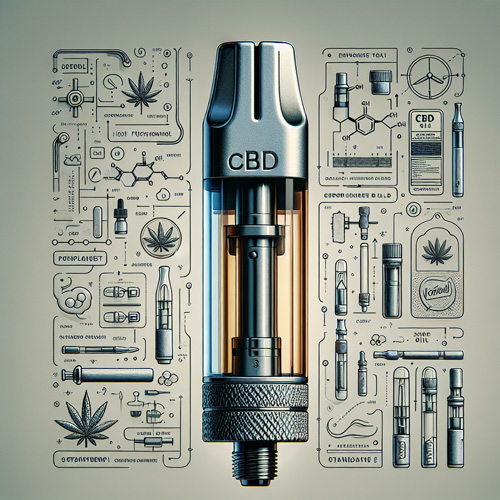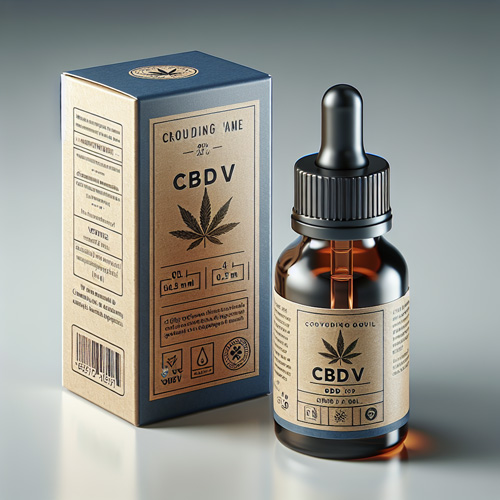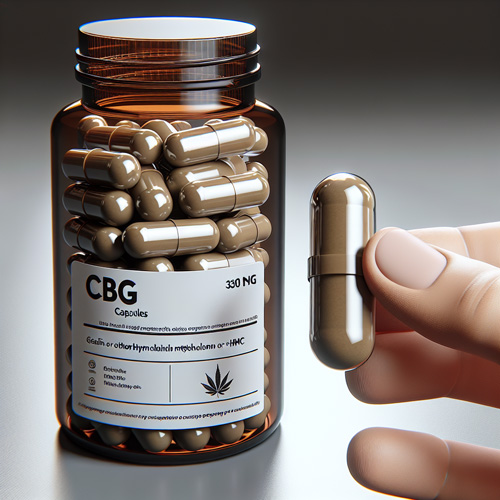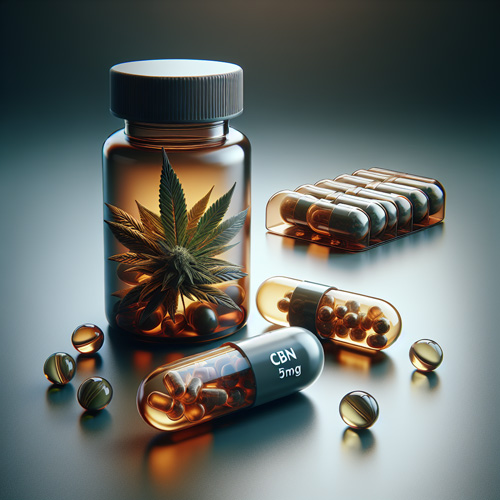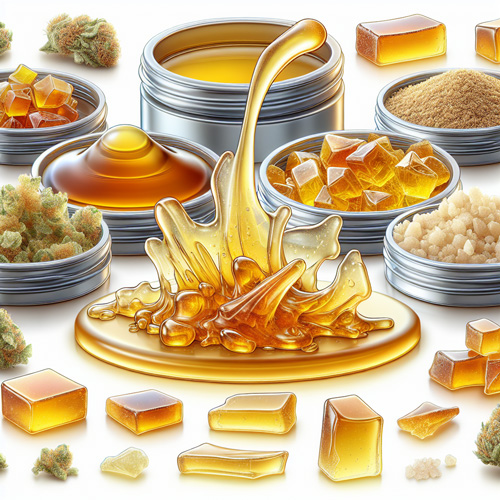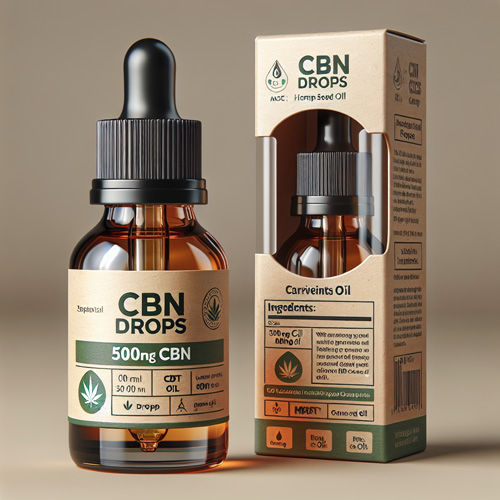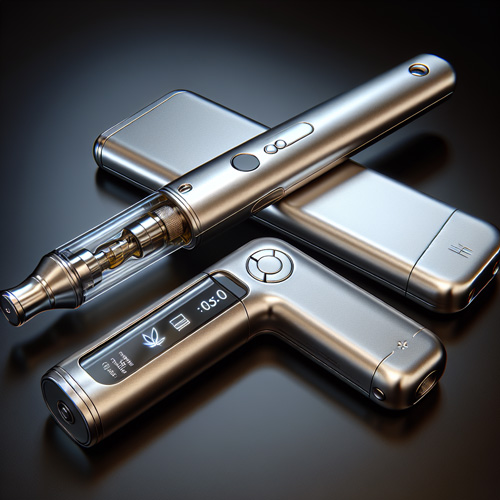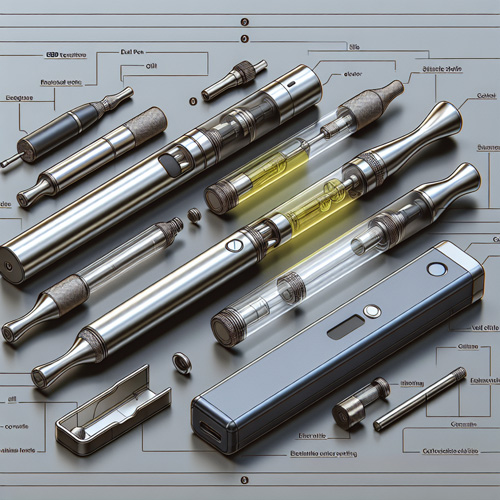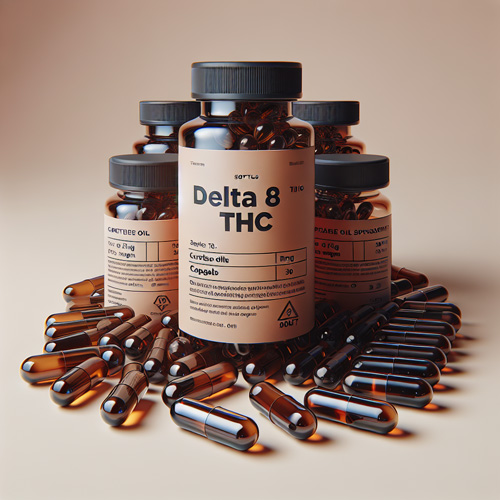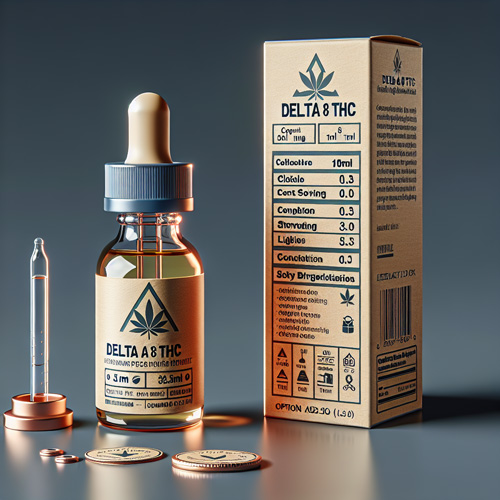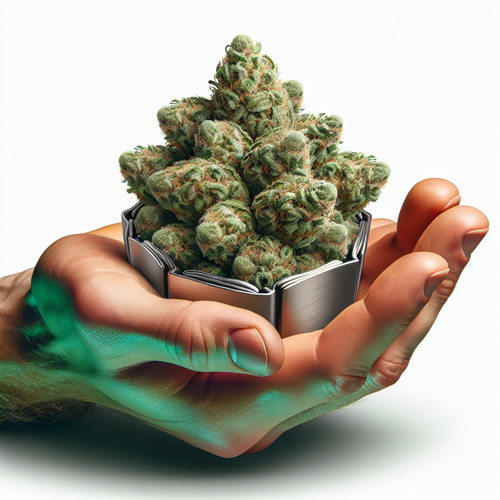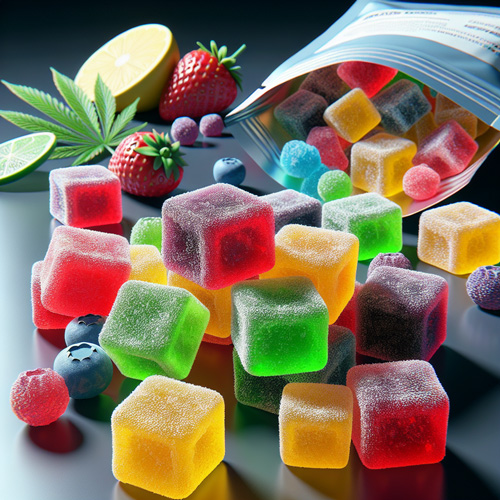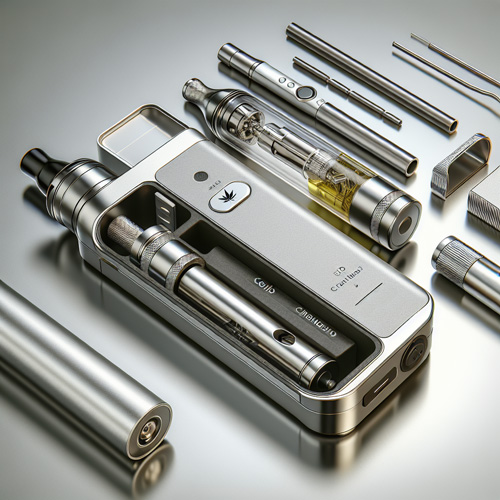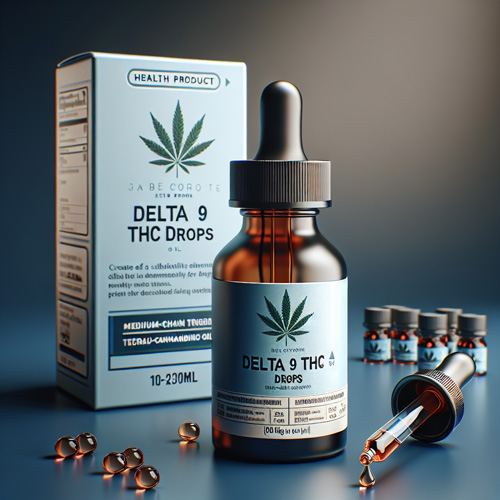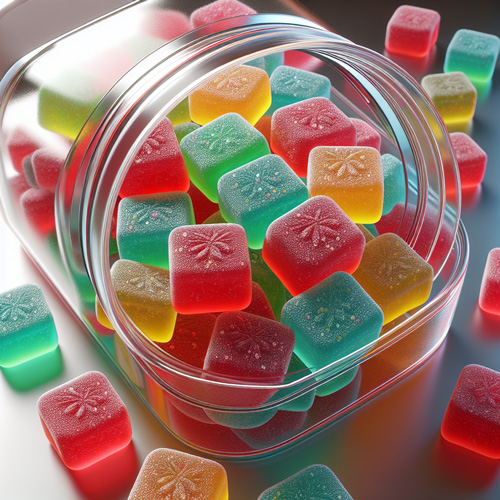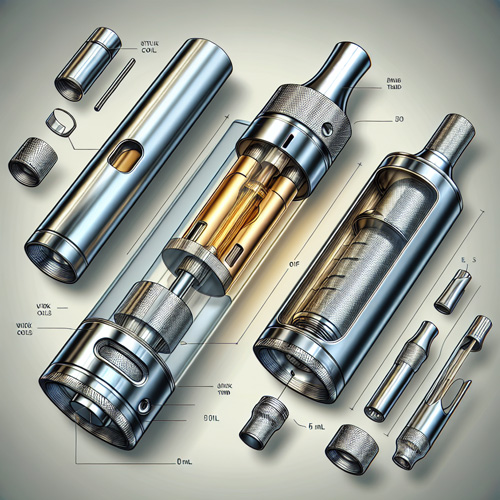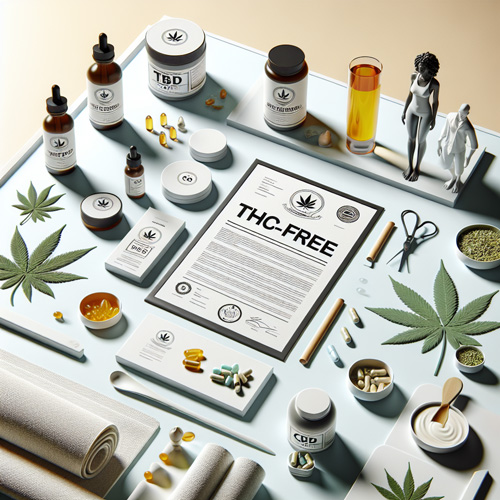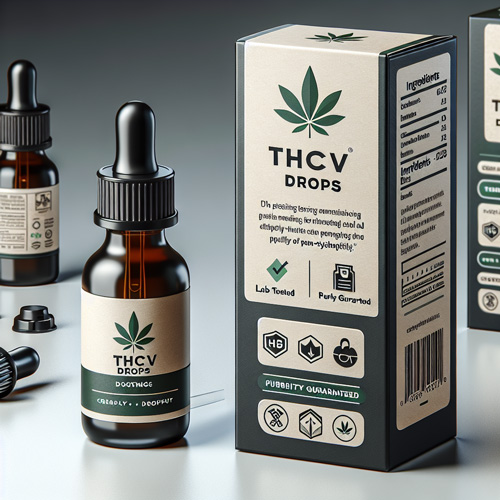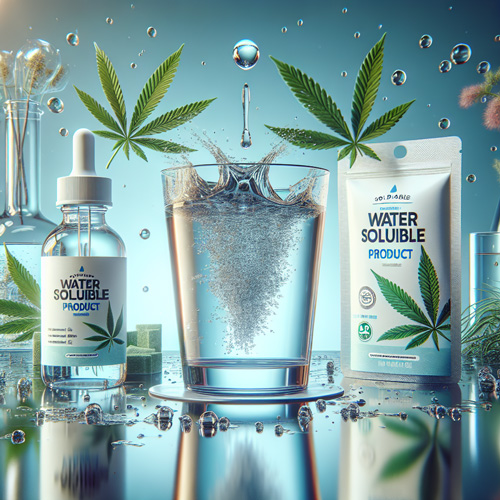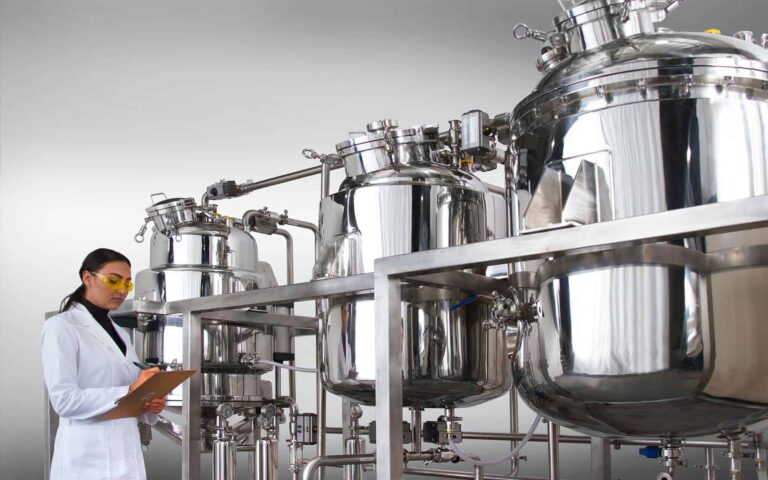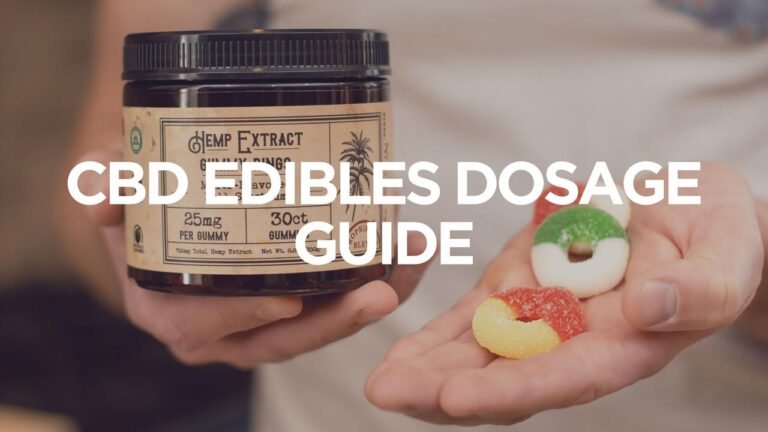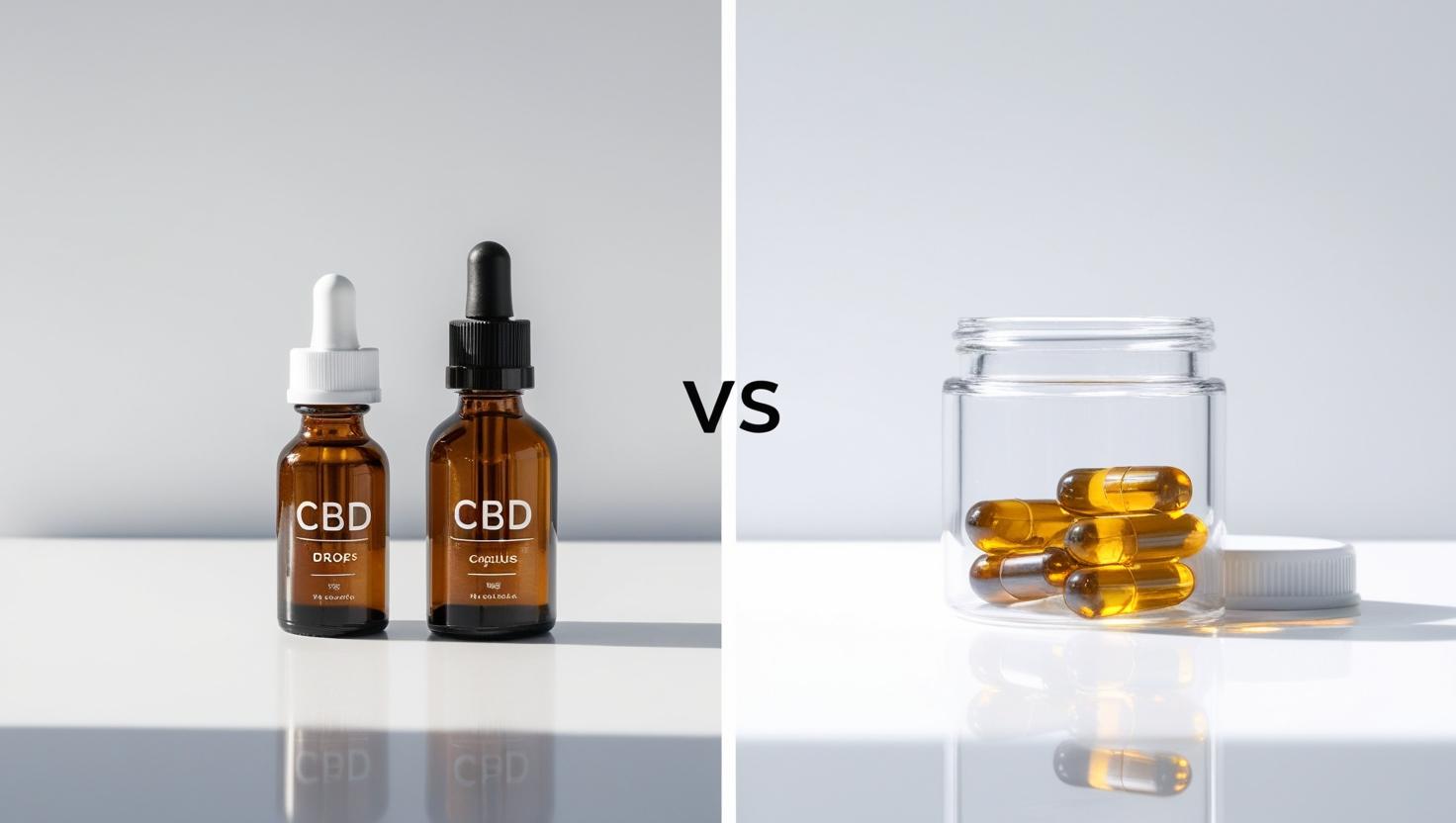
CBD Capsules Vs. CBD Drops: Which Option is Best For You?
There are many ways to take your daily dosage of CBD oil, but which is the best option? Follow our discussion on CBD capsules and CBD drops to make your choice.
CBD, or cannabidiol, has become a popular supplement for those seeking the potential therapeutic benefits of cannabis without the psychoactive effects. With various methods available to consume CBD, drops and capsules have risen as two of the most preferred options. Each form presents unique benefits and drawbacks, influencing which option may be more suited for individual needs.
Key Takeaways
- Ease of Use: CBD capsules offer a convenient, discreet way to take a precise dose without the need for measuring, making them perfect for on-the-go use. CBD drops, on the other hand, allow for adjustable dosing, giving users the flexibility to tailor their intake according to their needs.
- Absorption Rate: When it comes to how quickly CBD enters your system, drops generally act faster due to sublingual absorption, meaning the CBD is absorbed directly into the bloodstream through tissues in the mouth. Capsules take longer as they must be digested and metabolized.
- Duration of Effects: While capsules may take longer to kick in, they often provide more prolonged effects compared to drops, which can be ideal for those seeking long-lasting relief.
- Taste Preferences: For those particular about taste, capsules are tasteless and might be favored over drops, which although available in flavored options, may still have a hempy taste that some find unpleasant.
- Versatility and Control: Drops offer enhanced versatility, allowing users to mix them into food or beverages, and greater control over dosage adjustments, which can be critical for tailoring personal CBD regimens.
- Lifestyle Fit: Consider your daily routine when choosing between the two. Capsules are easy to incorporate into a supplement regimen and suitable for those leading a busy life, whereas drops might better suit individuals who seek customization and immediate effect.
CBD drops, also known as tinctures, are renowned for their rapid absorption and flexibility in dosing.
Contrastingly, CBD capsules offer a tasteless, precise, and discreet way to consume CBD, making them appealing for those who seek consistency and simplicity.
The choice between these forms depends on factors such as bioavailability, onset of action, taste preferences, and conveniences, which are crucial for making an informed decision.
In this article, we will delve into the distinctive features and advantages of CBD drops and capsules, provide a comparative analysis, and explore factors to consider when choosing the best form for your lifestyle and health goals. Whether you prioritize quick relief, clean taste, or ease of use, this guide will help you navigate your journey through the world of CBD to find the ideal option for your needs.
Understanding CBD Drops
CBD drops are a popular method for consuming cannabidiol, a compound derived from the hemp plant. They are primarily appreciated for their flexibility and relatively quick onset of effects. Unlike capsules, CBD drops are absorbed sublingually, meaning they bypass the digestive tract and enter the bloodstream directly through the capillary-rich areas under the tongue. This method not only offers the potential for faster delivery but also allows users to enjoy different flavors, like citrus or peppermint, that manufacturers might add to mask the natural earthy or woody taste of CBD. Moreover, using CBD drops with a dropper allows for precise dosing adjustments, catering to individual needs and preferences.
Absorption and Bioavailability
When considering the absorption and bioavailability of CBD, one must weigh the differences in the administration methods. For CBD drops, sublingual administration ensures that the compounds enter the bloodstream directly, skipping the lengthy digestive process required for capsules. This results in a higher bioavailability, approximately between 20 to 30 percent. In contrast, CBD capsules typically offer a bioavailability of only 13 to 19 percent since the cannabinoid must endure metabolic breakdown before entering circulation. This distinction is crucial because bioavailability directly influences how much of the active compound actually benefits the body, affecting the therapeutic potential of CBD.
Faster Onset of Action
One of the significant advantages of CBD drops is their faster onset of action. When taken sublingually, CBD oil can begin exerting its effects within 10 to 15 minutes. This speed is due to the direct absorption of cannabinoids into the bloodstream through the sublingual glands, bypassing the digestive system. In comparison, CBD capsules require between 45 minutes to an hour to take effect, as they must be digested first. The higher bioavailability of CBD oil further contributes to its quicker onset, making it a preferred choice for those seeking rapid relief from symptoms such as chronic pain or anxiety.
Flexible Dosing Options
CBD drops provide users with flexible dosing options that are not possible with fixed-dose capsules. Using a dropper, individuals can easily increment their dose drop by drop, customizing their intake according to their body’s response and health goals. This method empowers users with control over their dosage and enables adjustments on-the-fly. Unlike capsules, which provide a specified dose in each pill, CBD drops’ adaptability extends beyond sublingual use, as the oil can also be mixed with food and beverages. This versatility makes CBD oil an attractive option for those seeking an adjustable dosing method.
Potential Taste Considerations
While CBD drops offer flexibility and a faster onset, they also come with considerations regarding taste. CBD oil often has a robust, earthy flavor that some users might find unappealing. Although manufacturers have developed flavored versions to offset this natural taste, not all consumers enjoy the options available. On the other hand, CBD capsules are tasteless and odorless, making them suitable for those sensitive to strong flavors. The flavorless nature of capsules provides an alternative for individuals who wish to benefit from CBD without confronting the distinctive taste associated with the oil. This consideration is important for maintaining a consistent daily regimen particularly for those who might find the earthy taste of CBD oil challenging.
Understanding CBD Capsules
CBD capsules represent a convenient form of CBD consumption, offering a precise and reliable way to incorporate cannabidiol into one’s wellness routine. Derived from the hemp plant, these capsules contain a pre-measured dose of CBD oil or extract encased in a softgel capsule, allowing for easy administration. Unlike CBD drops or oils, the capsule form provides an exact dosage, making it easier for users to maintain a consistent daily dose without needing manual adjustments. This is particularly beneficial for individuals managing chronic pain or those looking for long-term health benefits. However, it’s important to consult with a healthcare professional before starting any new supplement regimen to ensure it’s appropriate for your specific needs.
Tasteless Option
One of the standout features of CBD capsules is their taste-free nature, which makes them ideal for those who are sensitive to the distinct earthy taste of CBD oil. As the capsules dissolve in the stomach rather than the mouth, they completely bypass taste buds. This feature also allows for discreet consumption in public or professional settings without the characteristic aroma of hemp extract being a concern. For people who detest the natural hemp flavor found in some CBD products, capsules offer a seamless alternative, ensuring a tasteless experience while still delivering the desired wellness benefits.
Precise Dosage
CBD capsules excel in providing an exact and consistent dosage of CBD, eliminating the guesswork often involved with oil-based products. Each capsule is clearly labeled with the specific amount of CBD it contains, ensuring users can easily track their daily intake without complex calculations. This precision is particularly useful for those starting with a lower dosage and gradually increasing their intake, as it allows them to do so without altering the number of capsules consumed. While CBD oils require manual adjustment to achieve a tailored dose, capsules ensure uniformity in each dose, which is beneficial for individuals seeking a routine and dependable CBD intake.
Consistent Release of CBD
CBD capsules are designed to release CBD slowly and consistently into the bloodstream, providing extended effects that can last up to 10 hours. The slow onset is due to the capsules’ journey through the digestive tract, where the liver gradually metabolizes the CBD. This prolonged release makes capsules particularly suitable for situations where sustained effects, like prolonged anxiety relief or chronic pain management, are needed. Consuming capsules with fatty foods, such as avocados or olive oil, can enhance their bioavailability, thereby optimizing the effectiveness of the CBD content. This steadier release pattern is advantageous for those who prefer infrequent dosing over the day.
Easy to Use and Discreet
Another advantage of CBD capsules is their simplicity and discretion. They eliminate the need for measuring or preparation, as each capsule is pre-dosed, making them perfect for on-the-go use. Unlike CBD oil bottles, which can be prone to leaks or spillage, capsules are convenient and can be easily carried in a purse or pocket without concern. Additionally, their lack of flavor and aroma further enhances their discreet nature, allowing for unnoticeable consumption. For users who prioritize convenience and subtlety in their CBD regimen, capsules offer a straightforward, mess-free option.
Comparative Analysis
When choosing between CBD capsules and CBD drops, understanding their differences is crucial to finding the right fit for your lifestyle and health needs. Both derived from the hemp plant, these CBD forms cater to different preferences in terms of choice and application. The main distinctions between them lie in bioavailability, onset of effects, duration, components, and dosing convenience. CBD oils, which include fewer ingredients like hemp extract and a carrier oil such as MCT oil, allow users to enjoy a customizable dosage depending on their needs.
On the other hand, in capsule form, CBD provides a pre-measured daily dose, ensuring precision and consistency that can be particularly useful for those with specific health guidelines set by a healthcare professional. Both products serve distinct user preferences and health considerations, making knowledge of their properties essential for informed selection.
Efficacy and Speed of Effects
When comparing the efficacy and speed of CBD capsules versus CBD drops, the method of administration significantly impacts how quickly and effectively each form works. CBD oil, absorbed directly into the bloodstream through sublingual administration under the tongue, offers a quicker onset within 10 to 15 minutes. This allows for a more immediate response, beneficial for users seeking rapid relief from symptoms such as chronic pain. In contrast, CBD capsules undergo the digestive process, having to pass through the digestive tract before absorption, which results in a slower onset time of 45 minutes to an hour. This method does offer a prolonged effect duration, however, sustaining benefits for 6 to 8 hours compared to the 4 to 6 hours typical of CBD oil. Despite this slower onset, both forms provide the same quality of cannabinoids, whether in broad spectrum or with additional cannabinoids, delivering reliable effects based on personal timing and preference.
Dosage Flexibility
CBD oil drops offer a customizable dosing experience, making it ideal for individuals who need to adjust their intake according to personal requirements. The liquid form allows for precise dosing adjustments, enabling users to experiment and find an ideal amount drop by drop. This flexibility is particularly useful for those new to CBD or with fluctuating needs. Nevertheless, this flexibility demands careful calculation of dosages, as users need to determine the exact amount of CBD in each dropperful.
In contrast, CBD capsules take the guesswork out of dosing, providing a consistent, pre-measured dose. This consistency can be especially beneficial for users with specific dosage requirements or those who prefer a straightforward, hassle-free intake without the need for adjustments. Ultimately, each form offers unique advantages, with the choice largely dependent on the user’s preference for flexibility versus convenience.
Convenience and Lifestyle Considerations
The convenience of CBD capsules stands out for those with busy or active lifestyles. They seamlessly integrate into a daily supplement routine, offering a spill-proof solution that CBD oil in a bottle does not. Particularly for travel or on-the-go use, capsules present a discreet and portable option, easily fitting into pillboxes or pockets.
Moreover, they eliminate the concern of an earthy taste associated with oil, appealing to those who prefer a flavorless experience. CBD capsules also provide a precise and steady daily dose, aligning well with users who need to manage their intake carefully due to specific health conditions. However, this added convenience and portability may contribute to their generally higher cost compared to CBD oil. Whether you value discretion and ease of use or are guided by budgetary considerations, both forms have distinct advantages that cater to different lifestyle preferences.
Factors to Consider
When deciding between CBD capsules and CBD drops, several factors should be taken into account to ensure an optimal experience. One of the most critical considerations is the bioavailability of the products.
CBD oil drops typically offer higher absorption rates compared to capsules because they are absorbed directly into the bloodstream through the mucous membranes beneath the tongue, bypassing the digestive tract. This leads to a faster onset of effects, making them suitable for those who require quick relief. In contrast, CBD capsules go through the digestive process, resulting in a slower onset but providing a precise dose that is convenient for on-the-go usage.
Another factor to consider is dietary restrictions, as some capsules may contain animal-derived gelatin, which can influence product choice for vegetarians or those with specific lifestyle preferences. Furthermore, the preference for a precise dosing method could guide individuals toward capsules, whereas those seeking flexibility in dosing might opt for oil drops. Ultimately, the decision between CBD oil and capsules depends on individual priorities, including desired onset time, dosing precision, and ease of consumption.
Personal Preferences and Taste
Personal preferences and taste are significant when choosing between CBD capsules and drops. For those who find the earthy taste of some CBD oil unpleasant, capsules provide a flavorless alternative, bypassing the taste buds entirely. This makes capsules a favorable option for users desiring a discreet, precise dosage without the notable taste often associated with CBD oil.
On the other hand, the earthy, natural taste of CBD oil is appreciated by some, particularly if users prefer integrating the oil into foods and drinks. Meanwhile, others might avoid oils altogether due to their distinct taste. Consequently, personal lifestyle, taste preferences, and dietary habits play a crucial role in determining which format is more suitable for an individual’s daily CBD routine.
Desired Effects and Health Goals
Choosing between CBD capsules and oil drops can significantly depend on one’s desired effects and health objectives. CBD capsules offer a pre-measured dose and are ideal for a discreet, flavorless supplement experience, while CBD oil drops—which are taken sublingually—provide higher bioavailability. This faster absorption is preferred by those who prioritize immediate effects.
Despite these differences, both CBD capsules and drops deliver equal benefits in terms of health goals. Consumers should consider their personal preferences and health objectives when making their choice. This decision becomes especially important considering that neither form is regulated by the U.S. Food and Drug Administration. Therefore, it’s advisable to start with a low dose and monitor individual reactions, consulting a healthcare professional if needed to prevent potential interactions with medications.
Lifestyle and Daily Routine
Integrating CBD into one’s lifestyle and daily routine involves considering how the product fits within existing habits. CBD tinctures provide quick absorption, with effects becoming noticeable in as little as 15 to 30 minutes and typically lasting four to six hours. This makes them suitable for individuals who need faster relief and perhaps want to integrate CBD into different areas of life, such as through topical applications in skincare.
Conversely, CBD capsules are celebrated for their convenience and discretion, making them ideal for individuals who prioritize an effortless, taste-free method of incorporating CBD into their routine. Regular ingestion ensures consistent dosing, which can be easily integrated into daily schedules. Users might find that creating a consistent CBD routine over a 30-day period helps in adjusting the serving size to meet individual needs, allowing time to refine how CBD best complements their lifestyle and health goals.
Tips for Choosing Quality CBD Products
When selecting CBD products, it is crucial to ensure that you are choosing high-quality options that offer both safety and therapeutic benefits. Start by seeking products accompanied by third-party lab reports, as these provide an unbiased confirmation of the cannabinoid content and purity.
Opt for full-spectrum CBD, which contains additional cannabinoids and terpenes, leading to enhanced therapeutic effects compared to CBD isolate. Make sure the product explicitly mentions cannabidiol content rather than just hempseed oil or cannabis sativa oil, which do not assure the presence of CBD. Prioritize products derived from organic hemp and produced by reputable brands known for maintaining best practices and consistency.
Importance of Third-Party Lab Reports
Third-party lab reports are critical for validating the quality and safety of CBD products. These reports, often in the form of a Certificate of Analysis (COA), provide a detailed breakdown of cannabinoid content and confirm the absence of contaminants like heavy metals, pesticides, and residual solvents.
Independent, accredited labs perform these tests to deliver unbiased and accurate results, which are vital for customer safety. By scanning a QR code on the product packaging, users can easily access these reports to verify ingredient accuracy. It’s important to note that many less reliable companies may only assess cannabinoid potency, ignoring safety tests.
Therefore, a lack of third-party lab reports should act as a significant warning sign, and consumers should avoid such products to ensure they are not compromising on quality or safety.
Full-Spectrum vs. Broad Spectrum vs. Isolate Options
Understanding the difference between full-spectrum, broad-spectrum, and isolate CBD options helps you make informed choices based on your needs and preferences.
Full-Spectrum CBD
Full-spectrum CBD contains all cannabinoids and compounds present in the hemp plant, including trace amounts of THC (less than 0.3%). This composition leads to what is known as the Entourage Effect, where cannabinoids work synergistically, enhancing the product’s therapeutic benefits.
This option is often considered the most effective for individuals seeking holistic benefits including the presence of all cannabinoids and terpenes. However, due to the presence of THC, full-spectrum may not be suitable for everyone, particularly those sensitive to THC or subjected to drug testing.
Broad-Spectrum CBD
Broad-spectrum CBD offers multiple cannabinoids and compounds from the hemp plant minus the THC. It retains some benefits of full-spectrum CBD through a partial entourage effect without the psychoactive component of THC. This makes it ideal for individuals who want to experience enhanced effects of CBD without consuming THC. Broad-spectrum products provide a balanced approach, maintaining the therapeutic benefits of multiple plant compounds while ensuring THC is not part of the equation.
CBD Isolate
CBD isolate is the purest form of CBD, where all other plant compounds and cannabinoids are removed. This option is best for individuals who want to experience CBD’s benefits in isolation without additional effects from other compounds. While offering no chance of an entourage effect, it ensures there is absolutely no THC. Consumers who are new to CBD or wary of other cannabinoids might prefer this option for its purity and precise dosing capabilities.
By understanding these product types, you can choose the right CBD formulation that aligns with your health goals and personal preferences.
Conclusion: Which CBD Form Is Right for You?
When deciding between CBD capsules and CBD drops, several factors come into play. If you prioritize a faster onset of effects, CBD drops might be the better choice. Drops are absorbed sublingually, enabling quicker absorption through the blood vessels under the tongue. This method can benefit those seeking immediate relief, such as for chronic pain.
On the other hand, CBD capsules offer the advantage of precise dosing, ensuring a consistent daily dose. Capsules are ideal for those who want an effortless, discreet way to take CBD without worrying about spills or the earthy taste associated with oil. The regular capsule form allows for easy transport and can be seamlessly incorporated into your daily routine, while the gel capsule option may offer added benefits, like additional cannabinoids and hemp extract.
Ultimately, the choice may depend on individual needs, such as taste preference, dosage accuracy, and desired speed of effect. Before starting any CBD regimen, it’s advisable to consult a healthcare professional to determine the best form for your requirements.
| Feature | CBD Drops | CBD Capsules |
|---|---|---|
| Onset Speed | Faster | Slower |
| Dosing Accuracy | Customizable | Precise |
| Portability | Moderate (risk of spills) | High |
| Taste | Earthy (hemp seed oil) | Neutral |
| Absorption Method | Sublingual (mucous membrane) | Oral (digestive tract) |
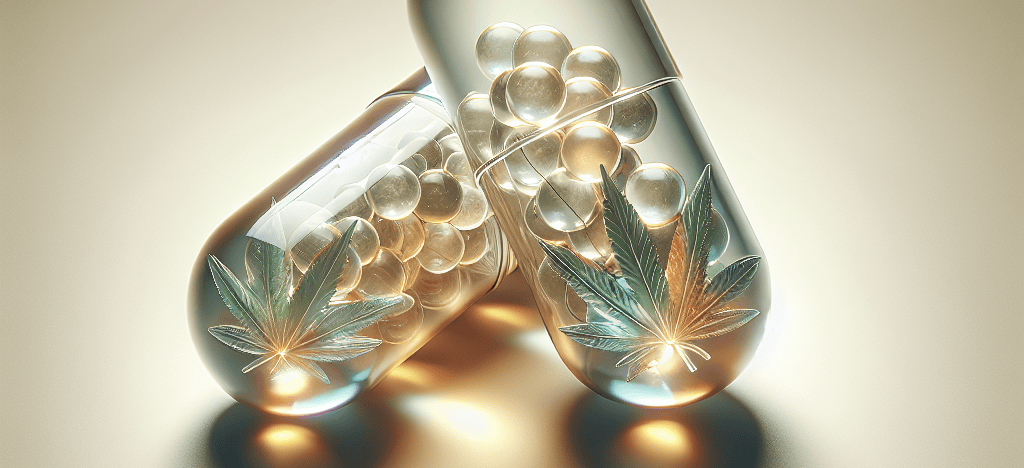
CBD Capsules
